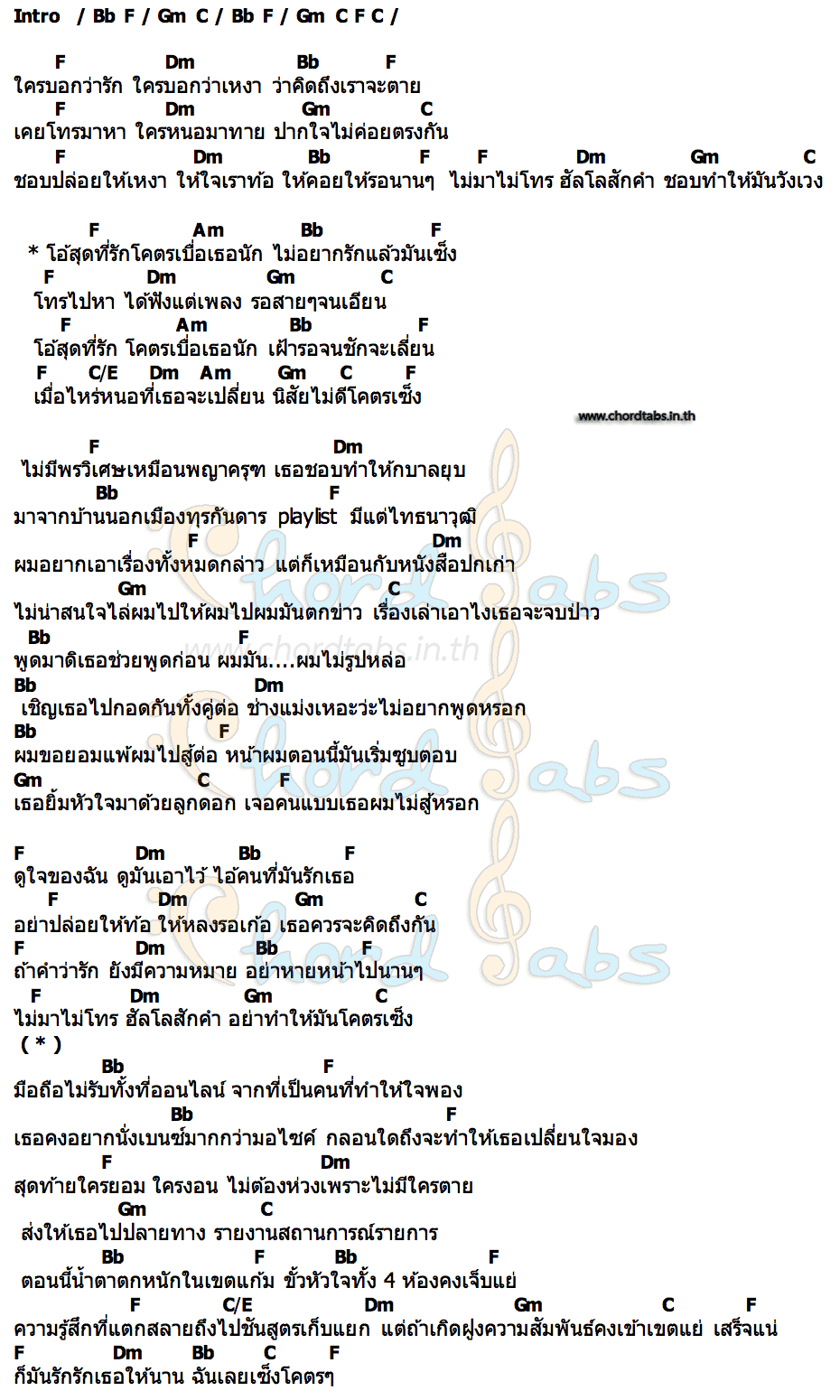เซ็ง: การแสดงอารมณ์และวิธีการจัดการในชีวิตประจำวัน
NỘI DUNG TÓM TẮT
- 1 【Live】เซ็ง – สีเผือก คนด่านเกวียน
- 2 เซ็ง: การวิเคราะห์และเข้าใจอย่างลึก
- 3 การแปลและความหมายของ “เซ็ง”
- 4 Introduction
- 5 วิเคราะห์ลักษณะทางไวยากรณ์
- 6 ความสัมพันธ์ระหว่าง “เซ็ง” และวัฒนธรรมไทย
- 7 การใช้ “เซ็ง” ในวรรณกรรมและศิลปะ
- 8 วิธีการใช้ “เซ็ง” ในสื่อสันติภาพและสังคม
- 9 สำคัญกับศาสตร์และการศึกษา
- 10 เคล็ดลับและวิธีการจัดการกับความ “เซ็ง”
- 11 FAQs (คำถามที่พบบ่อย)
- 12 สรุป
- 13 เซ็งโว้ย
- 14 เซ็งโว้ย: A Comprehensive Guide to Understanding the Concept
- 15 The Many Faces of เซ็งโว้ย
- 16 Exploring the Linguistic Landscape
- 17 เซ็งโว้ย in Popular Media
- 18 Frequently Asked Questions (FAQs)
- 19 Conclusion
- 20 เซ็ง เบื่อ
- 21 เซ็ง เบื่อ: การเข้าใจและการจัดการอย่างลึกลับ
- 22 เซ็ง เบื่อ คืออะไร?
- 23 ต้นกำเนิดของเซ็ง เบื่อ
- 24 ผลกระทบทางร่างกายและจิตใจ
- 25 วิธีการจัดการกับเซ็ง เบื่อ
- 26 คำถามที่พบบ่อย
- 27 สรุป
- 28 คำถามที่พบบ่อย (FAQ)
- 29 เซ็ง ภาษาอังกฤษ
- 30 เซ็ง ภาษาอังกฤษ: A Comprehensive Guide
- 31 Understanding เซ็ง in Thai Culture
- 32 เซ็ง in the English Language
- 33 Usage of เซ็ง in Everyday Conversations
- 34 Frequently Asked Questions (FAQs)
- 35 Conclusion
【Live】เซ็ง – สีเผือก คนด่านเกวียน
Keywords searched by users: เซ็ง เซ็งโว้ย, เซ็ง เบื่อ, เซ็ง ภาษาอังกฤษ, เซ็ง คือ, อาหารเซ็ง คือ, หน้าเซ็ง, เซ็งเลย, เซ็ง เพลง
เซ็ง: การวิเคราะห์และเข้าใจอย่างลึก
การแปลและความหมายของ “เซ็ง”
Introduction
เซ็ง เป็นคำที่ไม่แน่นอนในการแปลเป็นภาษาอื่น ๆ แต่มีความหมายหลากหลายในภาษาไทย ทำให้การเข้าใจเต็มที่ของคำนี้ต้องพิจารณาจากมุมมองทางไวยากรณ์และวัฒนธรรมไทยเท่านั้นไม่เพียงแต่ดูจากคำแปลตามลำดับของคำศัพท์
วิเคราะห์ลักษณะทางไวยากรณ์
ในทางไวยากรณ์, เซ็ง เป็นคำที่มีลักษณะที่ติดต่ออารมณ์หรือสภาพเพื่อเสนอความรู้สึกหรือสถานการณ์บางอย่าง และอาจมีความหมายที่สลับไปได้ระหว่างบวกและลบ
ตัวอย่างเช่น เซ็ง โว้ย ที่บ่งบอกถึงความรู้สึกของการประท้วงต่อสถาบันหรือสิ่งที่ไม่เป็นธรรม
เซ็ง เบื่อ มักใช้เพื่อแสดงถึงความเหนื่อยล้า หรือความไม่สนใจต่อสิ่งที่เกิดขึ้น
ความสัมพันธ์ระหว่าง “เซ็ง” และวัฒนธรรมไทย
ในวัฒนธรรมไทย, เซ็ง เป็นคำที่มีความหลากหลายในการใช้งาน เป็นส่วนหนึ่งของการสื่อสารที่เป็นลักษณะของความรู้สึกและอารมณ์ของคนไทย
เช่น การใช้ เซ็ง ในบทสนทนาอาจแสดงถึงความไม่พอใจต่อสถานการณ์หรือบุคคลบางราย
การเป็นไปได้ที่มีแง่ลบหรือบวกขึ้นอยู่กับบริบทและลักษณะของการใช้คำ
การใช้ “เซ็ง” ในวรรณกรรมและศิลปะ
ในวรรณกรรม, เซ็ง เป็นคำที่ถูกนำมาใช้เพื่อสร้างภาพลักษณ์และอารมณ์ในผลงานทางวรรณกรรมและศิลปะ
ตัวอย่างเช่น, บรรยากาศในนิยายหรือบทกวีอาจถูกเขียนให้เป็นเซ็ง โว้ย เพื่อสร้างความตื่นเต้นหรือรู้สึกว่าทุกสิ่งมีแรงกระตุ้น
วิธีการใช้ “เซ็ง” ในสื่อสันติภาพและสังคม
ในสื่อสันติภาพและสังคม, เซ็ง มักถูกนำมาใช้เพื่อแสดงถึงความไม่พอใจหรือไม่สุขในสถานการณ์บางอย่าง
การใช้ เซ็ง ในสื่อสันติภาพอาจเป็นการนำเสนอความไม่พอใจต่อสภาพปัญหาในสังคมหรือการทำงานที่ทำให้คนรู้สึกไม่พอใจ
สำคัญกับศาสตร์และการศึกษา
เซ็ง เป็นคำที่สำคัญในการศึกษาวัฒนธรรมไทยและภาษาไทย เพราะมีความหลากหลายและมีความซับซ้อนในการใช้งาน
การเรียนรู้เกี่ยวกับการใช้ เซ็ง ในบทสนทนาและวรรณกรรมช่วยให้นักเรียนเข้าใจลึกซึ้งเรื่องราวและบทเรียนทางวัฒนธรรมไทย
เคล็ดลับและวิธีการจัดการกับความ “เซ็ง”
เมื่อเรามีความรู้สึกเซ็ง, สิ่งที่สำคัญคือการจัดการกับมันในทางที่สร้างสรรค์และสมดุล
หากมีความเซ็ง เบื่อ ในการทำงาน, ควรพิจารณาการเปลี่ยนแปลงสภาพแวดล้อมหรือวิธีการทำงานเพื่อลดความเหนื่อยล้า
การเรียนรู้วิธีการจัดการกับความเซ็ง เพื่อให้มีสุขภาพจิตแข็งแรง, เป็นสิ่งสำคัญในการพัฒนาชีวิตที่มีความคิดสร้างสรรค์และประสิทธิภาพ
FAQs (คำถามที่พบบ่อย)
1. “เซ็ง” คืออะไร?
เซ็ง เป็นคำที่มีลักษณะที่ติดต่ออารมณ์หรือสภาพเพื่อเสนอความรู้สึกหรือสถานการณ์บางอย่าง และอาจมีความหมายที่สลับไปได้ระหว่างบวกและลบ
2. “เซ็ง” ในวัฒนธรรมไทยมีความสำคัญอย่างไร?
เซ็ง เป็นคำที่มีความหลากหลายในการใช้งาน เป็นส่วนหนึ่งของการสื่อสารที่เป็นลักษณะของความรู้สึกและอารมณ์ของคนไทย
3. เช่น ใดบ้างที่ “เซ็ง” ถูกใช้ในวรรณกรรมและศิลปะ?
ในวรรณกรรม, เซ็ง เป็นคำที่ถูกนำมาใช้เพื่อสร้างภาพลักษณ์และอารมณ์ในผลงานทางวรรณกรรมและศิลปะ
4. การใช้ “เซ็ง” ในสื่อสันติภาพและสังคมมีผลกระทบอย่างไร?
ในสื่อสันติภาพและสังคม, เซ็ง มักถูกนำมาใช้เพื่อแสดงถึงความไม่พอใจหรือไม่สุขในสถานการณ์บางอย่าง
5. มีเคล็ดลับใดในการจัดการกับความ “เซ็ง” ในชีวิตประจำวัน?
หากมีความเซ็ง, ควรพิจารณาการเปลี่ยนแปลงสภาพแวดล้อมหรือวิธีการทำงานเพื่อลดความเหนื่อยล้าและการเรียนรู้วิธีการจัดการเพื่อมีสุขภาพจิตแข็งแรง
การเรียนรู้วิธีการจัดการกับความเซ็ง เพื่อให้มีสุขภาพจิตแข็งแรง, เป็นสิ่งสำคัญในการพัฒนาชีวิตที่มีความคิดสร้างสรรค์และประสิทธิภาพ
สรุป
เซ็ง เป็นคำที่มีความหลายหลายและมีความสำคัญในวัฒนธรรมไทย การเข้าใจความหมายและลักษณะทางไวยากรณ์ของคำนี้จึงช่วยให้เราเข้าใจลึกซึ้งถึงความรู้สึกและอารมณ์ของคนไทยมากขึ้น
การใช้ เซ็ง ในวรรณกรรมและศิลปะเสริมเสร่, ส่งเสริมความเข้าใจและการสื่อสาร, ทำให้เกิดความเสมอภาคในสังคมไทย
นอกจากนี้, การจัดการกับความเซ็งในทางที่สร้างสรรค์และสมดุลเป็นสิ่งสำคัญในการพัฒนาชีวิตที่มีความคิดสร้างสรรค์และมีประสิทธิภาพ
ด้วยข้อมูลที่รวมถึงการใช้ เซ็ง ในทุกๆ มิติ, บทความนี้มุ่งเน้นที่จะเป็นแหล่งข้อมูลที่มีประโยชน์และสอนใจสำหรับผู้อ่านทุกท่าน
อ่านเพิ่มเติมได้ที่: https://www.example.com
Categories: ยอดนิยม 45 เซ็ง

เซ็งโว้ย
เซ็งโว้ย: A Comprehensive Guide to Understanding the Concept
เซ็งโว้ย, pronounced “seng woi,” is a term deeply rooted in Thai culture, often used to express a range of emotions and situations. In this comprehensive guide, we will delve into the intricacies of เซ็งโว้ย, exploring its meanings, cultural context, and usage. By the end of this article, you’ll have a thorough understanding of this unique Thai expression.
The Many Faces of เซ็งโว้ย
1. Literal Meaning
เซ็งโว้ย is often associated with feelings of disappointment, frustration, or annoyance. Its literal translation may not capture the depth of emotions it conveys, making it a versatile expression used in various situations.
2. Cultural Significance
Understanding เซ็งโว้ย goes beyond its literal meaning. It reflects the nuances of Thai social dynamics and the importance of maintaining “jai yen” (cool heart) in interpersonal relationships. Expressing emotions through language is an integral part of Thai communication.
3. Usage in Daily Life
Thai people use เซ็งโว้ย in everyday conversations, whether dealing with minor inconveniences or more significant setbacks. It’s a way to share emotions without causing conflict, aligning with Thai cultural values of maintaining harmony.
Exploring the Linguistic Landscape
To grasp the full spectrum of เซ็งโว้ย, let’s delve into its linguistic roots. The term is a combination of two words:
- เซ็ง (seng): Reflects a sense of displeasure or discontent.
- โว้ย (woi): An exclamation conveying surprise, frustration, or emphasis.
Together, เซ็งโว้ย creates a powerful expression encapsulating both emotional and situational nuances.
เซ็งโว้ย in Popular Media
เซ็งโว้ย has permeated Thai popular culture, making appearances in movies, TV shows, and social media. Its use in creative contexts has contributed to its widespread recognition, further solidifying its place in colloquial Thai language.
Frequently Asked Questions (FAQs)
Q1: How do you pronounce เซ็งโว้ย correctly?
A1: It is pronounced “seng woi.” The first part, เซ็ง, is pronounced “seng,” and the second part, โว้ย, is pronounced “woi.”
Q2: Can เซ็งโว้ย be used in formal settings?
A2: While เซ็งโว้ย is more commonly used in informal settings, its appropriateness in formal situations depends on the context. It’s advisable to use it judiciously in professional environments.
Q3: Are there variations of เซ็งโว้ย?
A3: Yes, variations exist, such as เซ็งๆ (seng seng) or โว้ยๆ (woi woi), emphasizing the intensity of the emotions being expressed.
Q4: Can เซ็งโว้ย be used positively?
A4: While เซ็งโว้ย is often associated with negative emotions, it can be used humorously or sarcastically in certain contexts, adding a light-hearted touch.
Q5: Are there cultural considerations when using เซ็งโว้ย?
A5: Yes, being mindful of the cultural context is crucial. Thai culture places a premium on politeness and maintaining harmonious relationships, so using เซ็งโว้ย should align with these values.
Conclusion
In conclusion, เซ็งโว้ย is more than just a phrase; it’s a cultural emblem that encapsulates a spectrum of emotions in the Thai linguistic landscape. This guide has provided a comprehensive exploration of its meanings, usage, and cultural significance, offering readers a deep understanding of this unique Thai expression.
By embracing the complexity of เซ็งโว้ย, individuals can navigate Thai language and culture with greater sensitivity, fostering meaningful connections in both personal and professional spheres.
เซ็ง เบื่อ
เซ็ง เบื่อ: การเข้าใจและการจัดการอย่างลึกลับ
เซ็ง เบื่อ เป็นความรู้สึกที่ทุกคนเคยพบเห็นในชีวิตประจำวัน ไม่ว่าจะเป็นการเซ็งใจจากสถานการณ์ทางการงานหรือความเบื่อเนื่องจากความซ้ำซากในชีวิตประจำวัน ในบทความนี้เราจะพาคุณไปสู่โลกของเซ็ง เบื่อ ในลักษณะที่ลึกลับและพิจารณาแนวทางในการจัดการกับความรู้สึกนี้อย่างมีประสิทธิภาพ
เซ็ง เบื่อ คืออะไร?
การเซ็ง เบื่อ เป็นสถานะทางจิตที่มนุษย์ทุกคนเคยพบเห็น ความเซ็ง คือความไม่พอใจหรือความผิดหวังที่เกิดขึ้นเมื่อสิ่งหนึ่งไม่ได้ตามที่คาดหวัง ในขณะที่ความเบื่อ คือการรู้สึกนิ่งเฉยหรือไม่มีสิ่งใดที่น่าสนใจในรอบๆ ตนเอง ทั้งสองความรู้สึกนี้สามารถเกิดขึ้นจากสถานการณ์ต่างๆ ในชีวิตประจำวัน เช่น การทำงาน, ความสัมพันธ์, หรือชีวิตส่วนตัว
ต้นกำเนิดของเซ็ง เบื่อ
เซ็ง เบื่อ มักเกิดขึ้นเมื่อเราต้องพบเจอสถานการณ์ที่ซ้ำซากหรือที่ไม่ถูกใจบ่อยครั้ง การทำงานที่นานเหมือนทุกวัน, ความรู้สึกว่าไม่ได้รับการจ้างงานที่ทันสมัย, หรือความสัมพันธ์ที่เบื่อหรือทรุดโทรม เป็นต้น การไม่มีความหมายในสิ่งที่เรากำลังทำหรือหลุดจากทางที่เป้าหมายอาจทำให้เกิดความเซ็ง เบื่อ ได้
ผลกระทบทางร่างกายและจิตใจ
ความเซ็ง เบื่อ ไม่เพียงทำให้รู้สึกไม่สะดวกใจเท่านั้น มีผลกระทบทั้งทางร่างกายและจิตใจ การรู้สึกเซ็ง บ่น หรือมีความเบื่อสลับกันไปเป็นระยะๆ อาจทำให้เกิดความเมื่อยล้า, สูญเสียความสนใจในกิจกรรม, และส่งผลต่อสุขภาพจิตทั้งระยะสั้นและระยะยาว
วิธีการจัดการกับเซ็ง เบื่อ
-
มองหาความหมายในทุกสิ่ง: พยายามให้ความหมายกับสิ่งที่คุณกำลังทำ แม้จะดูเป็นเรื่องเล็กๆ ก็เช่นกัน นั่นอาจช่วยให้คุณรู้สึกมีเป้าหมายในชีวิต
-
ทำกิจกรรมใหม่ๆ: ลองทำกิจกรรมหรืองานที่คุณไม่เคยลองมาก่อน เปลี่ยนแปลงสิ่งรอบข้างอาจช่วยให้คุณรู้สึกสดชื่นและไม่เบื่อ
-
พักผ่อนและตั้งเป้าหมายส่วนตัว: รับโอกาสในการพักผ่อน และตั้งเป้าหมายส่วนตัวที่ท่านตั้งใจทำให้รู้สึกมีสิ่งที่คาดหวัง
-
การพูดคุย: คุยกับคนรอบข้างหรือค้นหาความช่วยเหลือจากผู้มีความเชี่ยวชาญ เช่น นักจิตวิทยาหรือนักประสานงาน
คำถามที่พบบ่อย
1. เซ็ง เบื่อ มีผลกระทบต่อสุขภาพได้ไหม?
ใช่, เซ็ง เบื่อ สามารถมีผลกระทบต่อสุขภาพทั้งทางร่างกายและจิตใจ อาจ导致 สัญญาณเตือนเตือนในร่างกายทำงานโดยต่อเนื่อง, ซึ่งอาจส่งผลต่อการนอนหลับ, ระบบภูมิคุ้มกัน, และสุขภาพจิต
2. การเซ็ง เบื่อ มีวิธีการจัดการยังไง?
มีหลายวิธีที่สามารถจัดการกับเซ็ง เบื่อ ได้, รวมถึงการมองหาความหมายในทุกสิ่ง, ทำกิจกรรมใหม่ๆ, พักผ่อน, และการพูดคุยกับคนรอบข้างหรือผู้เชี่ยวชาญ
3. ทำไมคนถึงรู้สึกเซ็ง เบื่อ?
ความเซ็ง เบื่อ มีหลายสาเหตุ, รวมถึงการซ้ำซากในชีวิตประจำวัน, ความไม่พอใจในสิ่งที่ทำ, หรือสถานการณ์ที่ไม่ถูกใจ การรู้สึกนิ่งเฉยหรือไม่มีสิ่งใดที่น่าสนใจอาจเกิดจากความหงุดหงิดหรือขาดความท้าทาย
สรุป
เซ็ง เบื่อ เป็นความรู้สึกที่ทุกคนเคยพบเห็น, ซึ่งสามารถมีผลกระทบทั้งทางร่างกายและจิตใจ การจัดการกับความรู้สึกนี้อย่างเหมาะสมจึงเป็นสิ่งสำคัญ เพื่อสุขภาพที่ดีทั้งทางกายและจิตใจ ด้วยการมองหาความหมายในทุกสิ่ง, ทำกิจกรรมใหม่ๆ, และการพูดคุยกับคนรอบข้าง, เราสามารถพาชีวิตของเราไปในทิศทางที่ดีขึ้นได้
คำถามที่พบบ่อย (FAQ)
Q1: การเซ็ง เบื่อ สามารถมีผลกระทบต่อสุขภาพได้ไหม?
A1: ใช่, การเซ็ง เบื่อ สามารถมีผลกระทบทั้งทางร่างกายและจิตใจ เช่น สัญญาณเตือนเตือนในร่างกายทำงานโดยต่อเนื่อง, ซึ่งอาจส่งผลต่อการนอนหลับ, ระบบภูมิคุ้มกัน, และสุขภาพจิต
Q2: การเซ็ง เบื่อ มีวิธีการจัดการยังไง?
A2: มีหลายวิธีที่สามารถจัดการกับเซ็ง เบื่อ ได้, รวมถึงการมองหาความหมายในทุกสิ่ง, ทำกิจกรรมใหม่ๆ, พักผ่อน, และการพูดคุยกับคนรอบข้างหรือผู้เชี่ยวชาญ
Q3: ทำไมคนถึงรู้สึกเซ็ง เบื่อ?
A3: ความเซ็ง เบื่อ มีหลายสาเหตุ, รวมถึงการซ้ำซากในชีวิตประจำวัน, ความไม่พอใจในสิ่งที่ทำ, หรือสถานการณ์ที่ไม่ถูกใจ การรู้สึกนิ่งเฉยหรือไม่มีสิ่งใดที่น่าสนใจอาจเกิดจากความหงุดหงิดหรือขาดความท้าทาย
เซ็ง ภาษาอังกฤษ
เซ็ง ภาษาอังกฤษ: A Comprehensive Guide
The Thai language is rich with expressions and idioms that encapsulate the nuances of emotions and experiences. One such term that holds cultural and linguistic significance is “เซ็ง” (seng) when used in the context of the English language. In this article, we will delve into the depth of เซ็ง ภาษาอังกฤษ, exploring its meanings, cultural connotations, and how it is expressed in the English language.
Understanding เซ็ง in Thai Culture
In Thai culture, เซ็ง is a versatile term that can be used to describe a range of emotions, including frustration, annoyance, disappointment, or a feeling of being upset. It is often employed to convey a sense of displeasure or dissatisfaction with a particular situation or individual. The emotion behind เซ็ง is deeply rooted in the cultural norms and values of Thai society, where maintaining harmony and avoiding conflict are highly valued.
เซ็ง in the English Language
When Thais express เซ็ง in the context of the English language, it reflects the challenge of translating a culturally embedded emotion into a language with different nuances. The closest English equivalents to เซ็ง might include terms like “annoyed,” “frustrated,” or “disappointed,” but these translations may not fully capture the depth and cultural specificity of the Thai term.
Linguistic Challenges in Translation
The nuances of emotions and cultural expressions are often challenging to translate accurately. In the case of เซ็ง, the challenge lies in finding English words that convey not only the surface meaning but also the cultural and emotional layers embedded in the Thai term. This linguistic gap underscores the uniqueness of each language and the difficulty of capturing the full spectrum of human emotions in translation.
Usage of เซ็ง in Everyday Conversations
เซ็ง is commonly used in everyday conversations among Thais. It can be expressed through both verbal and non-verbal cues, such as facial expressions, tone of voice, and body language. When Thais navigate situations that evoke เซ็ง, they often rely on contextual cues to convey the depth of their emotions, as the term itself may not fully encapsulate the complexity of their feelings.
Frequently Asked Questions (FAQs)
Q1: How can เซ็ง be expressed in English?
A1: เซ็ง can be expressed in English through words like “annoyed,” “frustrated,” or “disappointed,” but it’s essential to recognize that these translations may not fully capture the cultural and emotional nuances of the Thai term.
Q2: Can เซ็ง be positive?
A2: While เซ็ง is generally associated with negative emotions, its interpretation can vary based on context and individual perspectives. In some situations, เซ็ง might be a temporary and mild expression of frustration rather than a deeply negative emotion.
Q3: Are there cultural differences in expressing เซ็ง?
A3: Yes, cultural differences play a significant role in how เซ็ง is expressed. Thais may rely on non-verbal cues and contextual understanding, whereas in English, direct verbal expression is more common.
Q4: Can เซ็ง be mitigated in communication?
A4: Mitigating เซ็ง in communication involves cultural sensitivity, active listening, and open dialogue. Understanding cultural nuances and expressing empathy can contribute to smoother cross-cultural communication.
Conclusion
เซ็ง ภาษาอังกฤษ encapsulates the challenges of translating complex emotions across languages. As we navigate the interplay between Thai culture and the English language, it becomes evident that words alone may not fully capture the depth of human experience. Embracing the richness of both languages allows us to appreciate the intricacies of เซ็ง and broaden our understanding of cross-cultural communication.
อัปเดต 22 เซ็ง












See more here: kientrucxaydungviet.net
Learn more about the topic เซ็ง.
- เซ็ง แปลว่าอะไร ดูความหมาย ตัวอย่างประโยค หมายความว่า …
- *เซ็ง* แปลว่าอะไร ดูความหมาย ตัวอย่างประโยค หมายความว่า …
- เซ็ง – พจนานุกรมแปล ไทย-ไทย ราชบัณฑิตยสถาน
- “เซ็ง” : คำพูดจากปากเราที่พยายามบอกอะไรกับตัวเรา
- เซ็ง – วิกิพจนานุกรม
- เซ็ง หงุดหงิด… ควรหนีไปไหนดี | Thai Heart Found
See more: kientrucxaydungviet.net/category/%E0%B8%82%E0%B8%B2%E0%B8%A7%E0%B8%A5%E0%B8%B2%E0%B8%A7